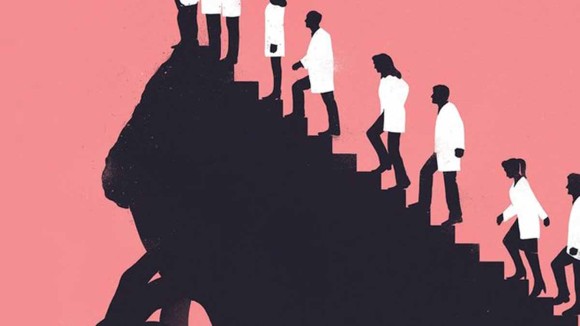Mental health is a regular topic on Nature's podcast and YouTube channels and this page links to some episodes where the issue is covered.
AI neuroscience, liquid crystals, and depression in academia
Dave Reay, a researcher at the University of Edinburgh, shares his experience of depression during his PhD.
Grand Challenges: global mental health
Mental health disorders touch rich and poor, young and old, in every country around the world. Hear three experts discuss the evidence for interventions, how to get help to the right people, and which challenge, if solved, would help the most.
Nature's PhD survey of more than 5700 doctoral students, published in October 2017 worldwide revealed significant levels of worry and uncertainty: more than one-quarter listed mental health as an area of concern. Overall 12%, of all respondents said that they had sought help for anxiety or depression caused by their PhD studies. Jenny Kedros, research manager at Shift Learning, the educational research agency that helped analyse the data, talked about the survey’s main findings in the November 2017 Naturejobs podcast.
Nature podcast presenter Ben Thompson discusses the 2017 PhD survey findings with Kate Samardzic, co-founder of Research Resilience, a support group at the University of Technology Sydney, Australia. Research Resilience holds regular seminars designed to help students cope with the emotional toll of PhD studies.
Sometimes, the brain perceives things that aren't there. The psychiatrist Oliver Sacks' 2012 book Hallucinations includes some of his own hallucinatory experiences alongside other case studies. Sacks, who died in 2016, talks to Kerri Smith.
Video
About one in every one hundred people must endure the psychosis, disorientation, and social withdrawal that define schizophrenia, according to a Nature Outlook published in April 2014. The supplement included a video featuring artist Sue Morgan who, when she's experiencing hallucinations, feels compelled to draw, to 'get it out of her head'. Sue meets Sukhi Shergill, a clinician and researcher at the Institute of Psychiatry in London. He's also making pictures, but using MRI to peer inside the brains of schizophrenia patients.
Addiction treatments suffer from high relapse rates, but now cutting edge work in neuroscience hopes to combat relapse through memory modification. A second film looks at how scientists are already selectively reprogramming memory to treat phobias. The next step - a cure for craving - could be just around the corner.

